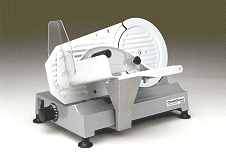A couple of days after the Canadians wrapped up their investigation, the U.S. Centers for Disease Control and Prevention has issued its own final report on the Listeria outbreak linked to packaged salads produced at a Dole Processing Facility in Springfield, Ohio.
 CDC, several states, and the U.S. Food and Drug Administration (FDA) investigated a multistate outbreak of Listeria monocytogenes infections (listeriosis).
CDC, several states, and the U.S. Food and Drug Administration (FDA) investigated a multistate outbreak of Listeria monocytogenes infections (listeriosis).
A total of 19 people infected with the outbreak strain of Listeria were reported from nine states.
All 19 people were hospitalized, and one person from Michigan died as a result of listeriosis. One illness was reported in a pregnant woman.
Whole genome sequencing (WGS) performed on Listeria isolates from all 19 ill people showed that the isolates were closely related genetically.
According to the Public Health Agency of Canada, ill people in Canada were infected with the same outbreak strain of Listeria.
WGS performed on clinical isolates from ill people in Canada showed that the isolates were closely related genetically to Listeria isolates from ill people in the United States.
Epidemiologic and laboratory evidence indicated that packaged salads produced at the Dole processing facility in Springfield, Ohio and sold under various brand names were the likely source of this outbreak.
On January 27, 2016, Dole voluntarily recalled all salad mixes produced in the Springfield, Ohio processing facility. Any recalled salad mixes still on the market or in consumers’ homes would be past their expiration dates.









